新概念第二册第19课教案
- 格式:doc
- 大小:101.00 KB
- 文档页数:9
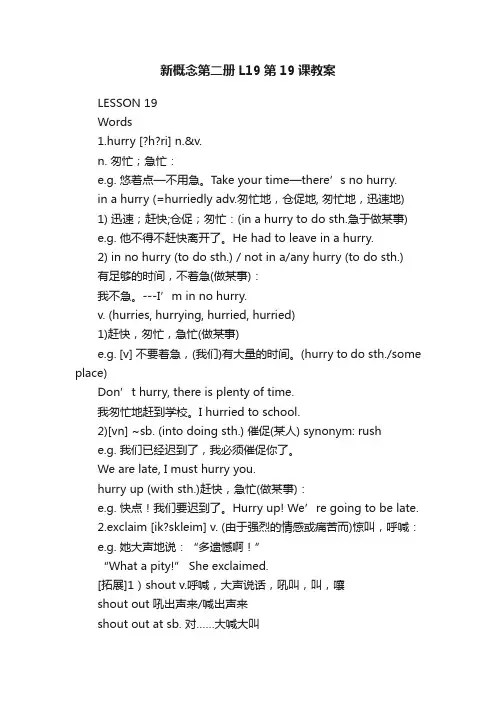
新概念第二册L19第19课教案LESSON 19Words1.hurry [?h?ri] n.&v.n. 匆忙;急忙:e.g. 悠着点—不用急。
Take your time—there’s no hurry.in a hurry (=hurriedly adv.匆忙地,仓促地, 匆忙地,迅速地)1) 迅速;赶快;仓促;匆忙:(in a hurry to do sth.急于做某事)e.g. 他不得不赶快离开了。
He had to leave in a hurry.2) in no hurry (to do sth.) / not in a/any hurry (to do sth.)有足够的时间,不着急(做某事):我不急。
---I’m in no hurry.v. (hurries, hurrying, hurried, hurried)1)赶快,匆忙,急忙(做某事)e.g. [v] 不要着急,(我们)有大量的时间。
(hurry to do sth./some place)Don’t hurry, there is plenty of time.我匆忙地赶到学校。
I hurried to school.2)[vn] ~sb. (into doing sth.) 催促(某人) synonym: rushe.g. 我们已经迟到了,我必须催促你了。
We are late, I must hurry you.hurry up (with sth.)赶快,急忙(做某事):e.g. 快点!我们要迟到了。
Hurry up! We’re going to be late.2.exclaim [ik?skleim] v. (由于强烈的情感或痛苦而)惊叫,呼喊:e.g. 她大声地说:“多遗憾啊!”“What a pity!” She exclaimed.[拓展]1)shout v.呼喊,大声说话,吼叫,叫,嚷shout out 吼出声来/喊出声来shout out at sb. 对……大喊大叫2)scream v. (因伤痛、害怕、激动等)尖叫、惨叫、惊叫exclamation[?ekskl??me??n] n. 感叹;感叹语;感叹词exclamation mark 感叹号3.return v. 1) 回来;回去;返回e.g. 你什么时候回到伦敦?When are you returning to London?2) 带回;送回;放回;归还,退还~sb./sth.(to sb./sth.)e.g.我准备去图书馆还书。
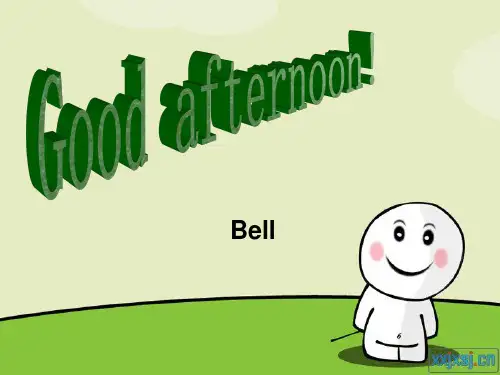
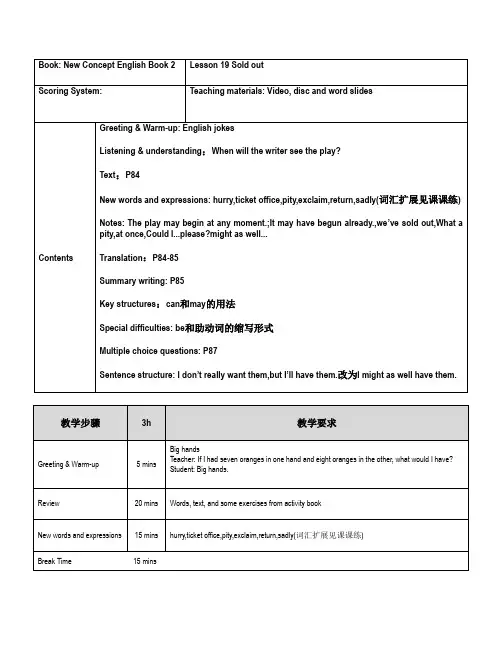
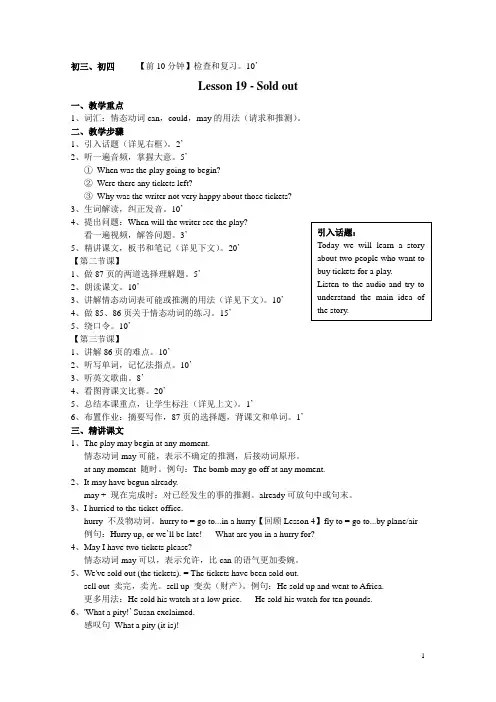
初三、初四【前10分钟】检查和复习。
10’Lesson 19 - Sold out一、教学重点1、词汇:情态动词can,could,may的用法(请求和推测)。
二、教学步骤1、引入话题(详见右框)。
2’2、听一遍音频,掌握大意。
5’①When was the play going to begin?②Were there any tickets left?③Why was the writer not very happy about those tickets?3、生词解读,纠正发音。
10’4、提出问题:When will the writer see the play?5、精讲课文,板书和笔记(详见下文)。
20’【第二节课】1、做87页的两道选择理解题。
5’2、朗读课文。
10’3、讲解情态动词表可能或推测的用法(详见下文)。
10’4、做85、86页关于情态动词的练习。
15’5、绕口令。
10’【第三节课】1、讲解86页的难点。
10’2、听写单词,记忆法指点。
10’3、听英文歌曲。
8’4、看图背课文比赛。
20’5、总结本课重点,让学生标注(详见上文)。
1’6、布置作业:摘要写作,87页的选择题,背课文和单词。
1’三、精讲课文1、The play may begin at any moment.情态动词may可能,表示不确定的推测,后接动词原形。
at any moment 随时。
例句:The bomb may go off at any moment.2、It may have begun already.may + 现在完成时:对已经发生的事的推测。
already可放句中或句末。
3、I hurried to the ticket-office.hurry 不及物动词。
hurry to = go to...in a hurry【回顾Lesson 4】fly to = go to...by plane/air 例句:Hurry up, or we’ll be late! What are you in a hurry for?4、May I have two tickets please?情态动词may可以,表示允许,比can的语气更加委婉。
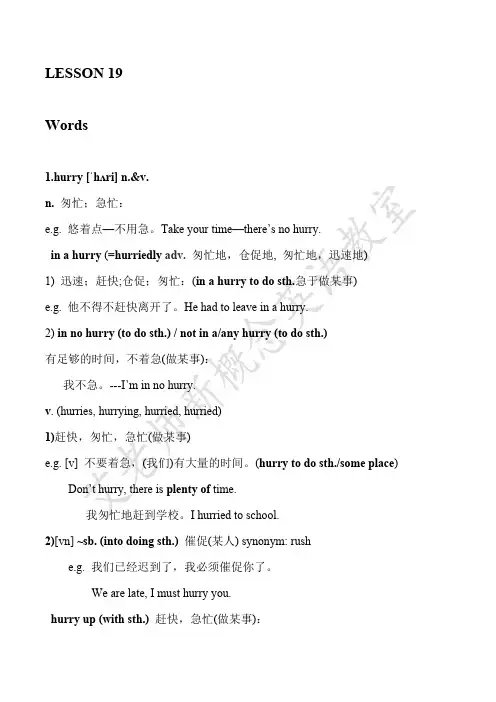
LESSON 19Words1.hurry [ˈhʌri] n.&v.n. 匆忙;急忙:e.g. 悠着点—不用急。
Take your time—there’s no hurry.in a hurry (=hurriedly adv.匆忙地,仓促地, 匆忙地,迅速地)1) 迅速;赶快;仓促;匆忙:(in a hurry to do sth.急于做某事)e.g. 他不得不赶快离开了。
He had to leave in a hurry.2) in no hurry (to do sth.) / not in a/any hurry (to do sth.)有足够的时间,不着急(做某事):我不急。
---I’m in no hurry.v. (hurries, hurrying, hurried, hurried)1)赶快,匆忙,急忙(做某事)e.g. [v] 不要着急,(我们)有大量的时间。
(hurry to do sth./some place)Don’t hurry, there is plenty of time.我匆忙地赶到学校。
I hurried to school.2)[vn] ~sb. (into doing sth.) 催促(某人) synonym: rushe.g. 我们已经迟到了,我必须催促你了。
We are late, I must hurry you.hurry up (with sth.)赶快,急忙(做某事):e.g. 快点!我们要迟到了。
Hurry up! We’re going to be late.2.exclaim [ikˈskleim] v. (由于强烈的情感或痛苦而)惊叫,呼喊:e.g. 她大声地说:“多遗憾啊!”“What a pity!” She exclaimed.[拓展]1)shout v.呼喊,大声说话,吼叫,叫,嚷shout out 吼出声来/喊出声来shout out at sb. 对……大喊大叫2)scream v. (因伤痛、害怕、激动等)尖叫、惨叫、惊叫exclamation[ˌekskləˈmeɪʃn] n. 感叹;感叹语;感叹词exclamation mark 感叹号3.return v. 1) 回来;回去;返回e.g. 你什么时候回到伦敦?When are you returning to London?2) 带回;送回;放回;归还,退还~sb./sth.(to sb./sth.)e.g.我准备去图书馆还书。
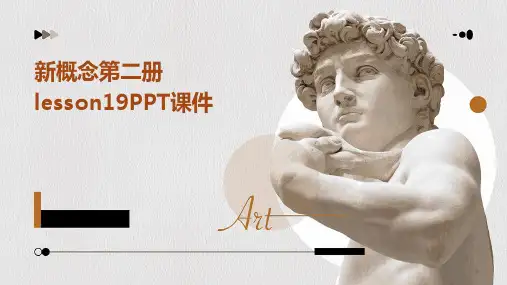
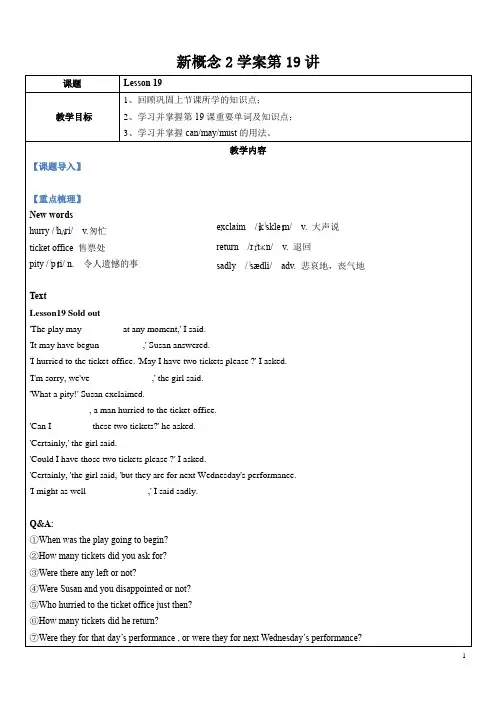
新概念2学案第19讲⑧Did you buy them or not?一、重要知识点1. Sold outsell v.v. 过去时___________过去分词________________标题中的sold out 前被省略了____________________。
例题精讲The cake ________well. Today’s cakes ______________ at 11:00 a.m.A.is sold; were sold outB.sells; were sold outC. is sold ; sold outD.sells;sold out总结:当表示“销售好、卖的好”时,表达方式为_____________________, _______(有/无) 被动语态;当表示“卖光”时,表达方式为_____________________, _______(有/无) 被动语态;助记n. _____________ 销售,销售量✧This computers are in the factory now and three days later they will be for sale.✧Almost everything is on sale on the Internet on 11th November.总结:__________________________________________________________2.'The play may begin at any moment,' I said.关于moment的短语①You can come to me ___________________________, because we are best friends.②______________________, he was listening to the radio. That was why he didn’t hear the knock on the door.【等你来挑战】一、将课文补充完整。


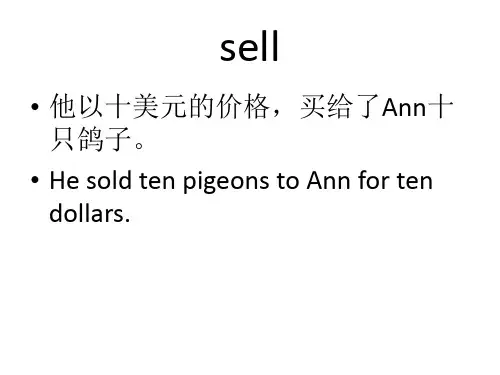
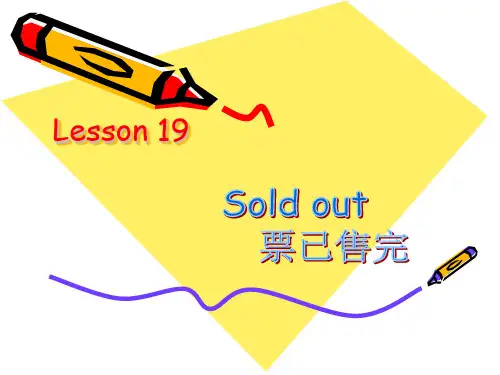
语音课教案英语语音课教学设计一、教学内容本节课为英语语音课,教学内容主要来自《新概念英语》第二册第19课 "The Greenhouse"。
本节课的教学重点为正确理解和使用英语中的连读现象,以及掌握相关词汇和短语。
二、教学目标1. 学生能够正确识别并模仿英语中的连读现象。
2. 学生能够理解和使用本节课的重点词汇和短语。
3. 学生能够在实际情景中运用所学知识进行流畅的对话。
三、教学难点与重点重点:正确理解和使用英语中的连读现象,以及掌握相关词汇和短语。
难点:连读现象的识别和模仿,以及相关词汇和短语的运用。
四、教具与学具准备教具:多媒体教学设备学具:笔记本、课本、练习册五、教学过程1. 导入:教师通过多媒体展示一些常见的连读现象,引导学生关注英语中的连读现象。
2. 讲解:教师详细讲解连读现象的定义、类型和规则,并通过例句和练习进行讲解和巩固。
3. 实践:学生分组进行练习,模仿和纠正连读现象。
教师巡回指导,并对学生的发音进行评价和反馈。
4. 应用:学生分成小组,根据所学的连读现象,编写一段对话。
教师对学生的对话进行评价和反馈。
六、板书设计板书内容:连读现象的定义、类型和规则。
七、作业设计1. 作业题目:请根据所学的连读现象,编写一段对话,并尽量使用本节课的重点词汇和短语。
A: Hey, B, how was your day?B: Oh, it was okay. I had a meeting this morning, and then I worked on the project.A: That sounds busy. Did you make any progress?B: Yes, I did. I finished the report and sent it to the boss.A: Great! I hope you get some good feedback.B: Me too. Anyway, how was your day?A: Yes, I did. I got an invitation to a conference next month.B: That's cool! I hope you have a great time.A: Thanks, B. I'm looking forward to it.1. I had a meeting this morning.2. I worked on the project.3. I finished the report and sent it to the boss.4. I hope you get some good feedback.5. I went for a run in the morning.7. I got an invitation to a conference next month.8. I hope you have a great time.9. I'm looking forward to it.八、课后反思及拓展延伸本节课通过讲解和练习,让学生了解了英语中的连读现象,并能够正确识别和模仿。
新概念第二册第19课课件一、教学目标1.知识与技能:学生能够理解并运用本课所学的词汇和句型,描述家庭成员及其职业。
2.过程与方法:通过听、说、读、写等多种方式,提高学生的英语交际能力。
3.情感态度与价值观:培养学生热爱家庭、尊敬长辈的情感,增强对英语学习的兴趣。
二、教学内容1.词汇:father,mother,brother,sister,doctor,teacher,driver,worker2.句型:Whatdoesyourfatherdo?Heisadoctor.Whataboutyourmother?Sheisa teacher.三、教学重点与难点1.教学重点:掌握词汇和句型,能够描述家庭成员及其职业。
2.教学难点:正确使用句型进行交际,注意家庭成员称谓的用法。
四、教学过程1.热身活动(5分钟)老师与学生用英语进行自我介绍,互相询问家庭成员。
学生两人一组,用英语描述自己的家庭成员。
2.词汇学习(10分钟)老师展示图片,引导学生学习新词汇。
学生跟读并模仿发音,注意家庭成员称谓的用法。
3.句型学习(10分钟)老师示范句型的用法,引导学生进行模仿。
学生两人一组,用句型进行问答练习。
4.听力练习(10分钟)老师播放录音,学生听并回答问题。
学生两人一组,进行听力练习。
5.口语练习(10分钟)老师组织学生进行角色扮演,模拟家庭成员的交际场景。
学生两人一组,进行口语练习。
6.作业布置(5分钟)学生回家后,用英语向家人介绍家庭成员及其职业。
完成课后练习题。
五、教学评价1.课堂表现:观察学生在课堂上的参与程度、积极性和合作精神。
2.作业完成情况:检查学生作业的准确性和完整性。
3.口语表达能力:评估学生在口语练习中的表达能力和交际能力。
六、教学反思1.教师应注重培养学生的听、说、读、写综合能力,提高学生的英语交际能力。
2.教师应关注学生的学习需求,因材施教,激发学生的学习兴趣。
3.教师应加强对学生的个别辅导,帮助学生克服学习难点。
Lesson 19 Sold out 票已售完1.Sold out 票已售完sell [sel]v., n.v. (sold, sold[səʊld]) (opposite: buy bought , bought)1.~sth. (to sb.) (at/for sth.) / ~sb. sth. (at/for sth.) to give sth. to sb. in exchange for money出让;转让:e.g. [vn, vnn] 我把我的汽车转让给了詹姆斯,获得800英镑。
I sold my car to James for 800 pounds. I sold James my car for 800 pounds.[vn] 他们把公司卖掉,赢了利/赔了钱。
They sold the business at a profit/loss (=they gained/lost money when they sold it).[v] 我们开了好价钱,但他们不卖。
We offered them a good price but they wouldn’t sell.2. [vn] to offer sth. for people to buy出售;售卖:e.g. 你这儿卖邮票吗?Do you sell stamps? 出售保险to sell insurance [inˈʃuərəns]3. to be bought by people in the way or in the numbers mentioned; to be offered at the price mentioned销售得…;卖出…;售价是…:e.g. [vn]这种杂志一周售出30万册。
The magazine sells 300,000 copies a week.sell well畅销sell badly 滞销这部戏的票卖得很好/不好。
The tickets for the play sold well/badly.The new design just didn’t sell (=nobody bought it).新款式无人问津。
sell for +价格以…价格出售sell at +价格以…价格卖出e.g. 这个花瓶至少要卖5000美元。
The vase will sell for 5000 dollars at least.今年,洋白菜的价格很高。
Cabbage is selling at a high price this year.4. [vn] ~sth./yourself (to sb.) to persuade sb. that sth. is a good idea, service, product, etc.; to persuade sb. that you are the right person for a job, position, etc.推荐;推销;自荐;自我推销:e.g. 应聘面试的时候,你真得推销你自己。
You really have to sell yourself at a job interview.Phr.v.1. sell sth. off1) to sell things cheaply because you want to get rid of them or because you need the money甩卖;抛售;变卖(get rid of sb./sth. 摆脱;丢弃;扔掉)2) to sell all or part of an industry, a company or land出售,卖掉(产业、公司或土地):e.g. 教堂卖掉了那块地皮,用来盖房子了。
The Church sold off the land for housing.(house [hauz]vt.1. 给(某人)提供住处2.收藏;安置housing n. 1. [u](统称)住房,住宅2. [u] 住房供给)2. sell out / be sold out (of tickets for a concert, football game, etc.音乐会、足球赛等的门票) to be all sold售完:e.g.几小时内票就卖光了。
The tickets sold out within hours.所有的票被卖光了。
All the tickets have been sold out.3. sell out (of sth.) / be sold out (of sth.) to have sold all the available items, tickets, etc.售空,卖光(某种商品、门票等);脱销:e.g. 抱歉,我们的面包卖完了。
I’m sorry, we’ve sold out of bread.我们卖光了所有的票。
We’ve sold out of all the tickets.先生,星期天的报纸已经卖完了。
We are sold out of Sunday newspapers, sir.seller[ˈselə]n.1. a person who sells sth. 卖者;销售者;卖方:opposite: buyer[ˈbaɪə]e.g. 卖花人a flower seller这项法律意在保护买卖双方。
The law is intended to protect both the buyer and the seller.2.a good, poor, etc.~ a product that has been sold in the amounts or way mentioned(畅销、滞销等的)商品:e.g. 畅销的商品a good seller 滞销的商品a bad/poor seller 畅销品a best sellerIDM: a seller’s market 卖方市场selling point n. a feature of sth. that makes people want to buy or use it卖点(吸引顾客的产品特色):e.g. 显然,价格低是一大卖点。
The price is obviously one of the main selling points.selling price n. 销售价sale[seil]n.1. [u, c] an act or the process of selling sth.出售;销售:e.g. 汽车/服装/商品的销售the sale of cars/clothes/goods2. (sales) [pl.] the number of items sold销售量3. (sales) [u] (also sales department [c]) the part of a company that deals with selling its products销售部4. [c] an occasion when a shop/store sells its goods at a lower price than usual特价销售;廉价出售;大减价:5. [c] an occasion when goods are sold, esp. an auction([ˈɔ:kʃən]n. 拍卖;竞卖;标售)销售活动;(尤指)拍卖IDM:1. for sale available to be bought, esp. from the owner待售;供出售(尤指从主人手里)e.g. 待售的房子a house for sale 抱歉,这个不卖。
I’m sorry, it’s not for sale.2. on sale1) available to be bought, esp. in a shop/store(常用于商店)出售,上市:e.g. 售票处正在售票。
Tickets are on sale from the booking office.新款下月上市。
The new model [ˈmɔdəl] goes on sale next month.2) (esp. AmE) being offered at a reduced price折价销售;减价出售:e.g. 所有商品今明两天降价出售。
All goods are on sale today and tomorrow.salesman n. 男售货员;男推销员e.g. 汽车推销员a car salesmansaleswoman n. 女售货员;女推销员2. 'The play may begin at any moment,' I said. “剧马上就要开演了,”我说。
1) may begin 是一种可能性的判断e.g. 客人们马上就要来了。
The guests may arrive at any moment.这天气随时都可能下雨。
It may/might rain (at) any moment.must+原形指比较肯定的判断e.g. 你一定是玛丽,我见过你的照片。
You must be Mary. I’ve seen your picture.cannot+原形指否定性的判断e.g. 你不可能是玛丽,她已经出国了。
You can’t be Mary. She has been abroad.may+原形指可能性的判断e.g. 她可能是玛丽,但我不确定。
She may be Mary, but I’m not sure.2) at any moment=at any time 随时at this moment=now 此时此刻at that moment=then 那时3. 'It may have begun already,' Susan answered. “也许已经开演了呢,”苏珊回答说。
may have begun1) may have done 对过去事情的一种可能性判断e.g. 它可能被偷走了。
It may have been stolen.2) must have done 对过去事情的一种肯定性判断e.g. 我找不到我的包了,它一定是已经被偷了。
I can’t find my bag. It must have been stolen.3) can’t have done 对过去事情的一种否定性判断e.g. 玛丽经过我身边没有说话,她一定是没有看到我。